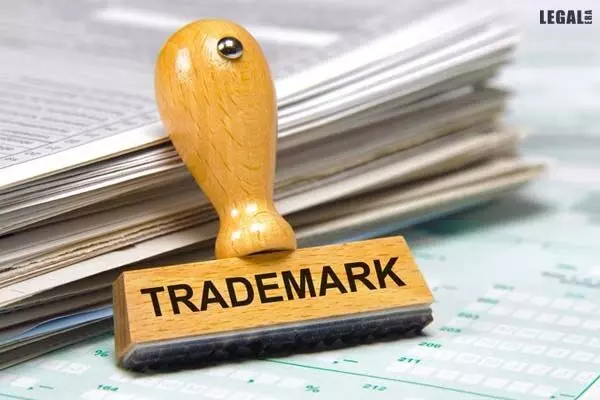- Home
- News
- Articles+
- Aerospace
- AI
- Agriculture
- Alternate Dispute Resolution
- Arbitration & Mediation
- Banking and Finance
- Bankruptcy
- Book Review
- Bribery & Corruption
- Commercial Litigation
- Competition Law
- Conference Reports
- Consumer Products
- Contract
- Corporate Governance
- Corporate Law
- Covid-19
- Cryptocurrency
- Cybersecurity
- Data Protection
- Defence
- Digital Economy
- E-commerce
- Employment Law
- Energy and Natural Resources
- Entertainment and Sports Law
- Environmental Law
- ESG
- FDI
- Food and Beverage
- Gaming
- Health Care
- IBC Diaries
- In Focus
- Inclusion & Diversity
- Insurance Law
- Intellectual Property
- International Law
- IP & Tech Era
- Know the Law
- Labour Laws
- Law & Policy and Regulation
- Litigation
- Litigation Funding
- Manufacturing
- Mergers & Acquisitions
- NFTs
- Privacy
- Private Equity
- Project Finance
- Real Estate
- Risk and Compliance
- Student Corner
- Take On Board
- Tax
- Technology Media and Telecom
- Tributes
- Viewpoint
- Zoom In
- Law Firms
- In-House
- Rankings
- E-Magazine
- Legal Era TV
- Events
- News
- Articles
- Aerospace
- AI
- Agriculture
- Alternate Dispute Resolution
- Arbitration & Mediation
- Banking and Finance
- Bankruptcy
- Book Review
- Bribery & Corruption
- Commercial Litigation
- Competition Law
- Conference Reports
- Consumer Products
- Contract
- Corporate Governance
- Corporate Law
- Covid-19
- Cryptocurrency
- Cybersecurity
- Data Protection
- Defence
- Digital Economy
- E-commerce
- Employment Law
- Energy and Natural Resources
- Entertainment and Sports Law
- Environmental Law
- ESG
- FDI
- Food and Beverage
- Gaming
- Health Care
- IBC Diaries
- In Focus
- Inclusion & Diversity
- Insurance Law
- Intellectual Property
- International Law
- IP & Tech Era
- Know the Law
- Labour Laws
- Law & Policy and Regulation
- Litigation
- Litigation Funding
- Manufacturing
- Mergers & Acquisitions
- NFTs
- Privacy
- Private Equity
- Project Finance
- Real Estate
- Risk and Compliance
- Student Corner
- Take On Board
- Tax
- Technology Media and Telecom
- Tributes
- Viewpoint
- Zoom In
- Law Firms
- In-House
- Rankings
- E-Magazine
- Legal Era TV
- Events
Trademark Infringement Implies Urgency For Exemption From Pre-Institution Mediation Under Section 12A Of Commercial Courts Act: Telangana High Court

Trademark Infringement Implies Urgency For Exemption From Pre-Institution Mediation Under Section 12A Of Commercial Courts Act: Telangana High Court
In a significant ruling concerning commercial disputes, the Telangana High Court has held that a plaintiff's allegations of trademark misuse can indicate an urgency that warrants court intervention, thus allowing for the exemption of pre-institution mediation as outlined in Section 12A of the Commercial Courts Act, 2015.
The Court emphasized the time-sensitive nature of intellectual property rights (IPR) and trademark infringement cases. It stated, “Unlike other forms of property, where the wrongful appropriation can be quantified, infringement of IPRs is often unquantifiable as the wrongdoer rides on the reputation and goodwill of the mark/brand.” This underscores the importance of timely action, as even a single unauthorized use can cause significant harm to the brand owner.
A Division Bench, comprising Justices Moushumi Bhattacharya and M.G. Priyadarsini, was reviewing a challenge by the petitioner against a Commercial Court order that rejected its revision application. The petitioner contended that the suit filed by the plaintiff was not maintainable, claiming it had bypassed the pre-institution mediation requirement of Section 12A. However, the Commercial Court found sufficient grounds to waive this requirement.
The Court analyzed Section 12A and noted the lack of clarity regarding how a plaintiff should demonstrate the need for urgent interim relief. It stated that there are no specific guidelines on whether a separate application for exemption is necessary or if such a request can be included in the plaint itself. This 'statutory silence' indicates that it is the plaintiff's responsibility to assess the urgency of their case while the court determines the validity of that assessment.
The ruling highlighted that while a separate application for exemption is not required, the onus is on the plaintiff to prove the need for urgent intervention. The Court indicated that it would assess whether the suit requires urgent relief based on the substance of the dispute and the relief sought.
In the current case, Veda Seed Sciences Pvt. Ltd. (the plaintiff) filed a suit for permanent injunction against defendants alleging copyright and trademark infringement regarding its registered trademarks. Veda claimed significant market reputation associated with its trademarks and accused the defendants of infringing upon them, particularly concerning high-quality hybrid cotton seeds.
The Court noted the urgency surrounding the allegations, stating, “The nature of the suit, the cause of action, and the relief claimed would themselves command urgent intervention by the Court.” The urgency was underscored by the imminent Kharif harvesting season, emphasizing the necessity of swift action to prevent misappropriation of the trademarks.
Ultimately, the Court concluded that Veda's suit was “wholly unsuited” for pre-institution mediation due to its urgent nature. It upheld the Commercial Court's order, allowing the plaintiff to proceed without the requirement for pre-institution mediation under Section 12A of the CC Act.


